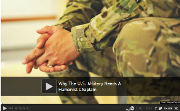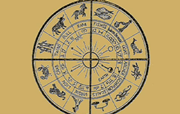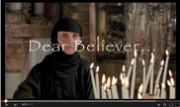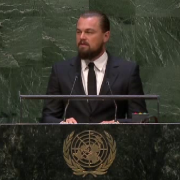 There is some evidence that certain indicators of religiosity appear to be going through a slight decline in the United States. That is the good news. The bad news is that the size of the apparent decline in most of these indicators is quite small and tends to be limited to comparisons between generational cohorts (e.g., the so-called Millennials aged 18-29 vs. other generations). And the really bad news is that some of us (and I can find fault with myself here too) seem determined to spin the numbers as being far more meaningful than they probably are.
There is some evidence that certain indicators of religiosity appear to be going through a slight decline in the United States. That is the good news. The bad news is that the size of the apparent decline in most of these indicators is quite small and tends to be limited to comparisons between generational cohorts (e.g., the so-called Millennials aged 18-29 vs. other generations). And the really bad news is that some of us (and I can find fault with myself here too) seem determined to spin the numbers as being far more meaningful than they probably are.
No Use for the Christian Bible
Here are some highlights from the American Bible Society's State of the Bible 2014 poll, one of the more recent surveys you have been hearing about around the atheist blogosphere:
- There was a slight decline in the number of people listing the Christian bible when asked about "holy" books between 2011 and 2014. In 2011, 86% of respondents mentioned the Christian bible as compared with 79% in 2014.
- 50% of Americans surveyed strongly agree that the Christian bible "contains everything a person needs to know to live a meaningful life," and this percentage is essentially unchanged from 2013 and 2011.
- 50% of Americans surveyed indicated that the Christian bible has "too little influence" in U.S. society compared with only 16% who said it has too much influence. The number believing it has too little influence has decreased slightly since 2013 (i.e., declined by about 6 percentage points).
- Millennials are "far more likely than average" to say that the Christian bible has too much influence on society "(30% compared to 50% of all adults)." The number of Millennials saying that the Christian bible has too little influence (30%) has declined from 44% in 2011.
- In spite of the numbers reported above, 26% of respondents indicated that they have never read the Christian bible.
- 30% of those surveyed said that the Christian bible is the "inspired word" of some sort of god and "has no errors, although some verses are meant to be symbolic" while another 23% view it as "the actual Word" of some sort of god and insist that it should be taken literally, "word for word." Only 18% "express strong skepticism of Scripture..." These numbers were all stable over time, except for the number saying the Christian bible is "just another book of good teachings" is now 18% compared with 11% in 2007.
I certainly understand the impulse to make it seem like these findings are earth-shattering. I like to write about good news every once in awhile, and I certainly want to see religion fade away too. But I think we need to be cautious in making too much of some differences that really aren't that large. This survey in particular provides compelling evidence that those of us interested in replacing superstition with reason have a long way to go, an embarrassingly long way to go.
There is also the recent survey of 2,000 18-34 year-olds conducted by the Integrated Innovation Institute at Carnegie Mellon University and described here by NPR. Much is being made of the finding that only 52% of the sample said they "look to religion for guidance," but NPR quotes the authors of the survey as saying, "...we think it's telling that, overall, the majority of this generation does express a fairly strong sense of faith." I wonder if we should put a bit more stock in their interpretation of their findings than in what we wish their results meant.
Rise of the 'Religiously Unaffiliated'
Last but not least is the 2012 survey from the Pew Research Center that is still receiving considerable attention around the atheist blogosphere, and for good reason.
The number of Americans who do not identify with any religion continues to grow at a rapid pace. One-fifth of the U.S. public – and a third of adults under 30 – are religiously unaffiliated today, the highest percentages ever in Pew Research Center polling.
 Video: World's Oldest Freethought Publication
Video: World's Oldest Freethought Publication Video: Theism is Not Rational by Aron Ra.
Video: Theism is Not Rational by Aron Ra.


 Video: A C Grayling Discusses Humanism
Video: A C Grayling Discusses Humanism Video: Leonardo DiCaprio
Video: Leonardo DiCaprio 30 Of The Most Violent Exhortations From The Bible, Torah, And Quran
30 Of The Most Violent Exhortations From The Bible, Torah, And Quran